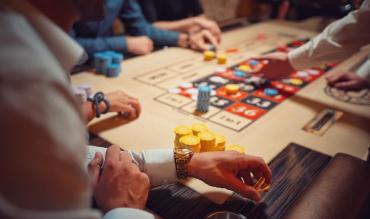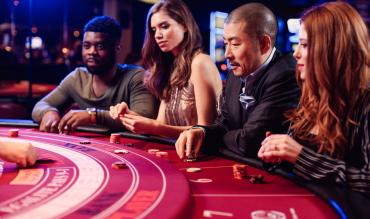Introduction
The practice of gambling has been a part of human culture for centuries, captivating individuals with the allure of risk and reward. Whether it's placing a bet at a casino, buying a lottery ticket, or participating in online poker, the psychological aspects behind gambling play a significant role in its appeal. In this article, we delve into the psychology of gambling, exploring the science behind the human fascination with risk and reward.
1. The Thrill of Uncertainty
One of the primary reasons people engage in gambling activities is the excitement generated by uncertainty. The human brain has an innate attraction to novelty and unpredictability, and gambling provides the perfect platform to satisfy these cravings. The anticipation of winning and the possibility of losing create an adrenaline rush that triggers the brain's reward system, releasing dopamine—a neurotransmitter associated with pleasure and motivation.
2. The Illusion of Control
Gamblers often harbor a belief in their ability to influence the outcome of a game or an event, even when luck is the primary determining factor. This phenomenon is known as the illusion of control. It stems from the human desire to feel competent and in command of their environment. By developing strategies, employing betting systems, or interpreting patterns, gamblers create a sense of control over the unpredictable. This perception enhances the pleasure derived from gambling, despite the limited influence on the actual outcome.
3. Availability Heuristic and Biases
The availability heuristic is a cognitive bias that influences the decisions we make based on readily available information. In the context of gambling, this bias can lead individuals to overestimate their chances of winning based on vivid memories of past successes or the stories of big jackpot winners. The media's tendency to highlight extraordinary wins contributes to this bias, creating an inflated perception of the likelihood of winning. Such biases can blur the line between reality and fantasy, leading gamblers to take more risks than they would in a rational state of mind.
4. Near Misses and the Gambler's Fallacy
Near misses, where the outcome is just short of a win, are particularly compelling for gamblers. These instances trigger a sense of hope and keep individuals engaged in the game, as they believe they are one step away from a significant victory. The gambler's fallacy further intensifies this effect by making individuals believe that a series of losses increases the likelihood of a win in the next round. This fallacy disregards the independent nature of random events and can lead to persistent gambling behavior.

5. Social Factors and Peer Influence
Humans are social beings, and the social environment plays a crucial role in shaping behavior, including gambling. The desire to conform to social norms, peer pressure, and the influence of family and friends can significantly impact an individual's decision to gamble. Social gambling environments, such as casinos, often create an atmosphere of excitement and camaraderie, further enhancing the appeal of gambling activities. Additionally, the normalization of gambling through advertisements, sponsorships, and endorsements can influence people's perceptions and contribute to increased participation.
6. Escapism and Emotional Regulation
For some individuals, gambling provides an escape from reality and a means to regulate their emotions. Whether it's seeking excitement, relief from stress, or a distraction from personal problems, the act of gambling can serve as a coping mechanism. The thrill of risking money and the potential for a win temporarily alleviates negative emotions and provides a sense of euphoria. However, this reliance on gambling as an emotional crutch can lead to addictive behaviors and financial consequences.
7. The Impact of Reinforcement and Loss Aversion
Psychologists have long studied the concepts of reinforcement and loss aversion in the context of gambling. The intermittent reinforcement schedule, where rewards are unpredictable and sporadic, is particularly effective in reinforcing gambling behavior. This schedule creates a sense of anticipation and makes the reward more desirable. Loss aversion, on the other hand, refers to the psychological tendency to strongly dislike losses compared to an equivalent gain. The fear of losing often drives individuals to continue gambling in an attempt to recoup their losses, resulting in a vicious cycle.
Summary
The psychology of gambling reveals that it is not purely a game of chance but rather a complex interplay of cognitive biases, social influences, and emotional factors. Understanding the science behind risk and reward can shed light on why gambling can be so captivating and addictive for some individuals. By recognizing the psychological mechanisms at play, both gamblers and society can take steps towards responsible gambling practices, promoting a healthier and more informed approach to this widespread form of entertainment.


